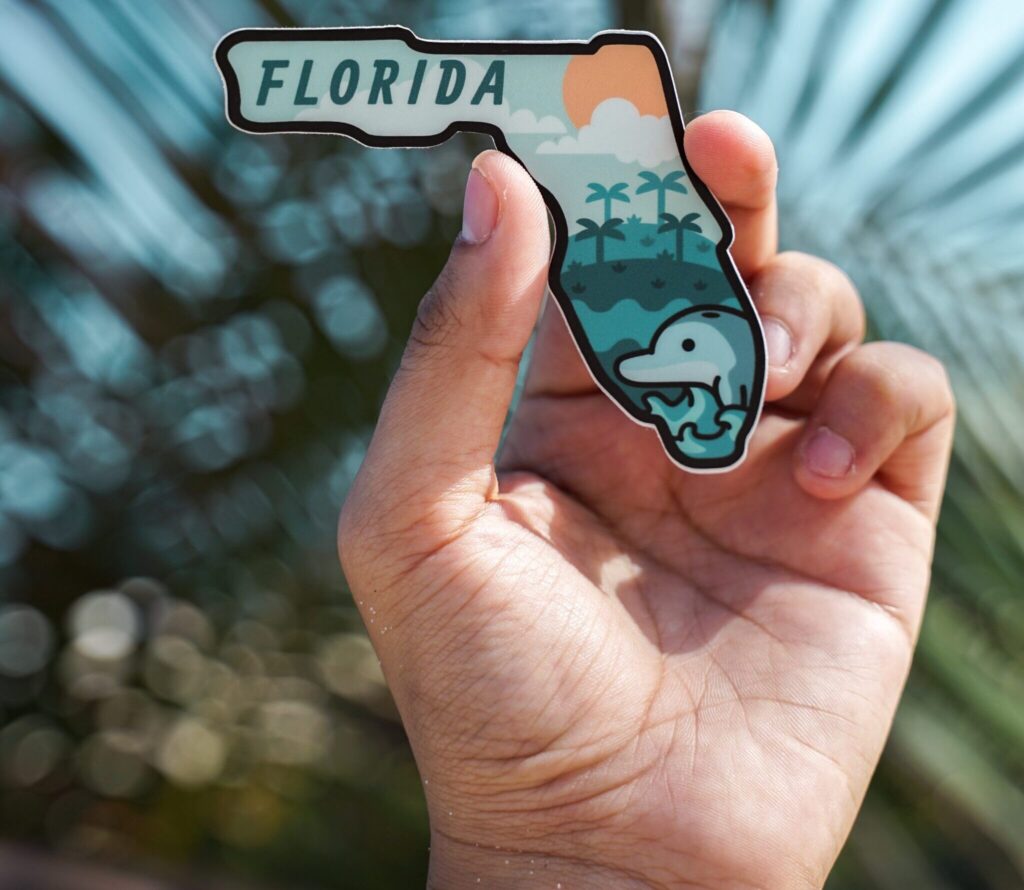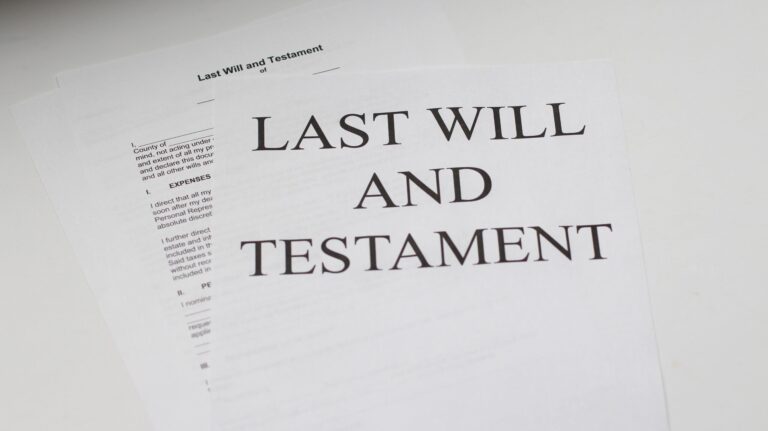Inheriting property in Florida
When an individual dies, they leave their assets to their loved ones. One can inherit Florida property by will, deed, or trust. If the decedent did not leave any will or trust, the court decides who the beneficiaries are.
Ultimately, inheriting property in Florida often involves a probate process determining the validity of the will or who the beneficiaries are if the decedent died intestate (without a will).
Probate is the legal process of administering a will. It can be short or very long, sometimes resulting in litigation. Most probate cases, however, are purely administerial, where the court ensures that the decedent’s wishes are respected, and all legal requirements are met.
Generally, the probate process involves gathering the estate assets, paying debts, and distributing assets to heirs and beneficiaries.
Heirs and beneficiaries have inheritance rights under Florida law, but these rights are subject to the Florida probate code and Florida probate rules.
Inheriting by will
Before death, a loved one writes and signs a will to ensure that their relatives and friends are well taken care of after passing away. They will control the disposition of property at death.
Inheriting by deed
To inherit property by deed in Florida, one must jointly own the said property with the deceased. Under Florida law, the other owner (remainderman) automatically takes possession of the property without the need for any legal processes except recording a death certificate or signing an affidavit.
Inheriting by trust
You can inherit property in Florida under the deceased’s trust. Inheriting by trust only involves a probate process if there is a living spouse or a minor (child under 18).
Pros
- Inheriting property comes with financial and legal obligations. You can benefit from your inheritance With a great financial advisor and a competent attorney.
- In Florida, beneficiaries are not responsible for the taxes because the executor of the will or successor trustee has a duty to collect and pay the state tax.
- Unlike some states, Florida does not have an inheritance tax (also known as a death tax). As such, heirs and beneficiaries in Florida are not required to file income tax on any money received from an estate because, under Florida law, the inherited property does not count as income for federal tax income purposes.
Cons
- In some situations, you may have to pay some form of inheritance tax. These situations include:
- If the inherited property generates income before the property is transferred to the beneficiaries, there may be a tax on the income generated during the probate or trust settlement period.
- Capital gains taxes if you sell an inherited property.
- The probate process can be lengthy and draining, especially if the decedent did not leave a will or a trust.

Inheriting homestead in Florida
A Florida homestead is exempt from creditors, which means that inheriting a homestead in Florida is fairly fast and easy because the homestead is not subject to probate proceedings. However, the exemption of homestead in Florida protects the owner’s primary residence while they are alive, as long as they are still living in the homestead.
Pros
- A homestead is not part of a probate estate because it is not subject to creditors, so it cannot be used to pay claims filed by the decedent’s creditors.
- Surviving inheritors can sell a homestead if it is not subject to claims against the decedent’s estate, especially if the homestead was titled in a living trust. Selling a homestead can be more complicated, but with proof that the homestead is exempt from potential creditor claims, companies can ensure the sale of the homestead.
Cons
- You may need a court order to determine homestead status on the property, and a court order requires court proceedings, i.e., formal probate. This means that you need to open probate if you intend to sell a homestead, even if the homestead was conveyed in a living trust and there are no probate assets.
What happens when I sell a house I inherited?
The probate process includes the appraisal and pricing of an inherited house in Florida. As an inheritor, you get the property transferred to your name when taxes and bills are fully paid.
If the house has a mortgage, it is transferred to you per Florida estate transfer laws. You can use a real estate agent or investor to sell your inherited house in Florida or go for the FSBO option and get a buyer by yourself.
After the sale, the funds received may be subject to federal income tax. However, the income tax is based on the property value from the decedent’s date of death.
For instance, if you inherit a house worth $100,000 on the decedent’s date of death and sell it for $180,000, you will have to pay income tax on the $80,000.
Where to report the sale of inherited property
The sale of an inherited property in Florida is reported on Form 8949. The details you should provide in this form include the house’s acquisition date, the date the house was sold, and a description of the house.
You are also required to report any capital gain or loss on the property on Form 8949, which is carried over to Schedule D.
Is the sale of an inherited house considered income?
If an inheritor sells a house at its fair market value, they would not be required t pay any capital gain taxes. However, if they sold the house at a price above the fair market value, the amount exceeding the fair market value is considered a capital gain. This is taxable income.

5 Tips for selling an inherited property in Florida?
You can begin the sale process when the inherited house is fully transferred to your name. The best way to ensure that the house sells fast is by preparing the house for showing.
- Make repairs to ensure that the house is in good condition for occupancy. The repairs do not have to be major, but it is better to have a house that has no obvious flaws to secure a buyer in good time.
- De-clutter and depersonalize the house to encourage potential buyers to visualize their lives in that house.
- Repaint the house using neutral colors to attract more buyers because neutral colors appeal to a larger pool of people.
- Improve curb appeal by ensuring the house’s exterior is well taken care of and the interior is decorated using up-to-date décor pieces.
- Hire professionals if you are unsure about any part of the sale process. A professional staging company or real estate agent will help you make quick preparations without compromising the price.
Common ways of selling an inherited property
When you are ready to sell your house in Florida, you have a few options:
- Sell your inherited house in Florida by FSBO
You can save on heavy real estate commissions and agent fees if you can invest your time, money, and resources to find a suitable buyer. This option allows you to expedite the selling process at your own pace without relying on anyone else.
- Sell with a Flat Fee MLS Company
Although you will need to pay a substantial amount in commissions and service charges, this option gives you the best chance of selling at a higher price within a shorter period. Your house will have more exposure to a larger pool of interested buyers, and you will have professionals with experience in this field handling the sale process until closing.
- Sell to a family member
If you have a family member interested in purchasing the house, this option allows you to keep the house within the family and reduces the pressure for both the buyer and the seller. Selling the property to a family member also requires you to have all the paperwork in order, but you can save on real estate agent fees.
- Sell the house to Level One Investments
Level One Investments is one of Florida’s best options for people selling an inherited property. Suppose you need to sell your house quickly to avoid unnecessary financial setbacks.
In that case, Level One Investments pays cash for inherited houses in Florida, and you are not required to make repairs or renovations. Level One Investments will buy your house without commissions or closing costs, and you can close on the sale within a few days.
Get Your Highest Cash Offer Now.
We Buy Houses in Florida in 7 days!
Florida Inheritance Laws
Inheritance laws in Florida are applied based on the validity and enforceability of a decedent’s last will and testament. If the decedent had signed a will, the Florida Inheritance Laws, through the probate process, will ensure that the decedent’s wishes are honored.
If a Florida resident passes away without a will, their assets are subject to Florida intestate succession inheritance laws. Florida intestate succession inheritance laws are straightforward.
Assets subject to intestate succession are passed on to the next of kin as Florida law stipulates. The next-of-kin could be a spouse, children, grandchildren, parents, siblings, or great-grandchildren.
Intestate succession laws give the spouse preference. However, descendants and other next-of-kin receive half of the decedent’s assets while the spouse receives half. If the decedent had only one spouse with children from that marriage, the surviving spouse will receive everything unless otherwise stated in a will.
If a spouse has other children from a previous partner, the deceased’s descendants will receive half of the intestate succession assets while the spouse receives the other half.
Does Florida have an inheritance tax?
Florida’s inheritance tax rate is zero because Florida does not have an inheritance tax. Beneficiaries of decedents in Florida do not owe the state any taxes on inherited property.
However, property inherited in Florida is subject to federal inheritance tax laws. Only assets worth $12.92 million and more are required to pay federal inheritance taxes.
Florida estate tax
Estate taxes in Florida are levied on the decedent’s estate, and they are paid from the deceased’s property before their assets are distributed to heirs and beneficiaries. Any pending taxes and debts are paid from the decedent’s estate, and the inheritors are not required to pay any estate taxes.
Estate tax Florida non-resident
Florida does not charge estate taxes regardless of whether you are a US citizen, a resident alien, or a non-resident alien. Jurisdictional complexity can complicate a lot of legal processes for non-residents in Florida, but with careful consideration and estate planning, property owned in Florida should go through probate proceedings in Florida regardless of citizenship status. The Florida constitution prohibits estate taxes, which also applies to estates that belong to a non-resident.
How do you determine the cost basis of an inherited house?
Generally, the cost basis of an inherited house in Florida is the Fair Market Value of the property on the decedent’s date of death. For instance, if your parent’s purchased a house for $250,000 in 1994, the value of that house will be higher today. This Fair Market Value is determined through the house’s appraisal by a professional real estate expert.
Capital Gains On Inherited Property
The step-up basis calculates capital gains in Florida. You get the capital gain by deducting the property’s Fair Market Value from the sale price.
If the Fair Market Value of a house upon the decedent’s death is $1 million, and an inheritor sells the house for $1.1 million, the capital gains on this house will be $100,000, which is subject to capital gains taxes.
Loss on sale of inherited property
You can claim a capital loss on the inherited property in Florida if:
- You sold the house at an arm’s length transaction, i.e., you sold the house to a buyer to whom you are not related.
- You sold the house, and other beneficiaries do not use the house for personal purposes.
- You sold the house, and you and the other beneficiaries had no intentions of converting the property for personal use before the sale.
Loss on the sale of inherited property is reported on Form 8949, which is later transferred to Schedule D. if the sale price is lower than the cost basis, you will have a capital loss on the inherited property.
Conclusion
Selling an inherited house in Florida is a relatively easy process that requires a lot of diligence in the legal and sale processes. As such, it is important to partner with professionals who understand these processes to ensure that you sell your inherited house in Florida quickly and without any legal challenges.
Level One Investments is the best option if you need to sell a house fast, for a good price, and without unnecessary responsibilities such as repairs or renovations. Contact Level One Investments to sell your inherited house in Florida and close the sale within a few days.
Table of Contents
FAQ
Most frequent questions and answers
Do I have to pay property taxes if I sell a house I inherited in Florida this year?
Any property received directly from an estate or trust in Florida is not subject to inheritance tax. However, the probate estate pays estate taxes and debts, and the inheritor is required to pay income taxes based on the cost basis upon the sale of the inherited house.
How do I avoid capital gains tax on inherited property in Florida?
You can avoid capital gains tax on inherited property in Florida by:
- Making the inherited house your primary residence.
- Selling the inherited house quickly.
- Renting out the inherited house.
- Disclaiming the inherited house.
- Deducting selling expenses from the capital gains.
Can I sell if a beneficiary is living in an inherited house?
If one beneficiary does not agree with the decision to sell the inherited house, the beneficiaries who agree to sell can force the sale of the house through a partition action.
Do I have to pay taxes on the sale of my deceased parent’s home?
If you. sell the inherited house for a price higher than the Fair Market Value, you are required to pay taxes for the capital gains




